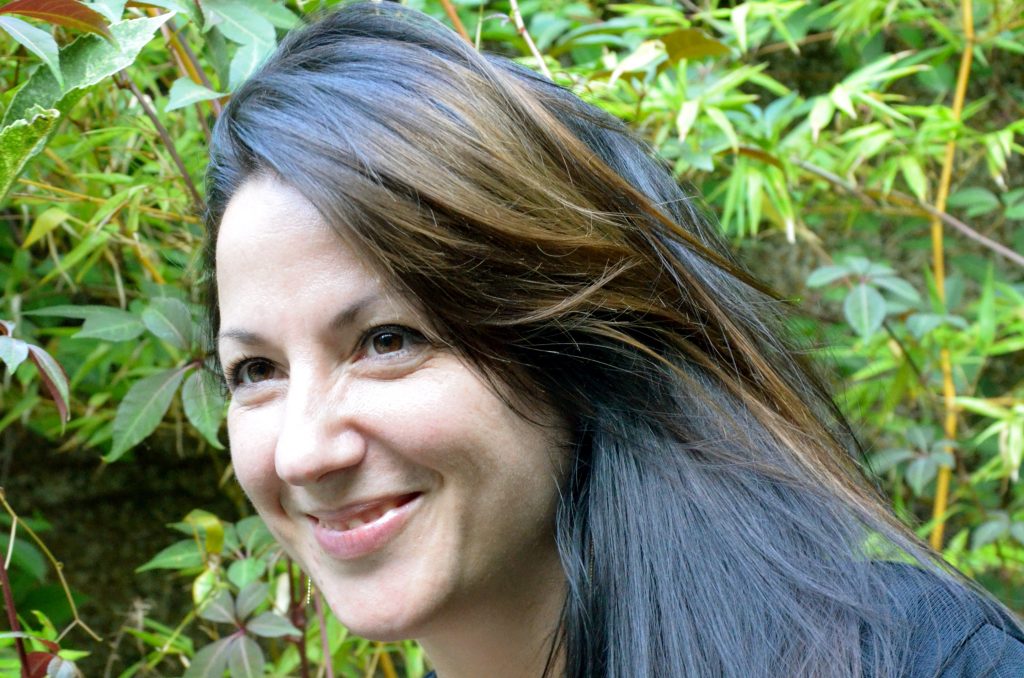
Beirut Born Visual Artist Helene Kazan Brings Her Inspirational Work to The New School
Growing up in the final years of the Lebanese civil war changed visual artist Helene Kazan forever. In 1989, at seven years, old, Kazan fled the country with her parents to escape the horrors of what seemed like a never-ending war.
For Kazan, the fear of bombs raining down after dark was part of daily life. Her parents prohibited her from taking the school bus, since her mother was British and the British government advised that there was a real danger that she could be kidnapped and could put other students in harms way. The family spent six months primarily living in a basement to escape the shelling. When they finally settled in Great Britain, those years in Lebanon were rarely discussed.
Those early childhood experiences have unmistakably influenced her work and served as an impetus for creating art that helps others make sense of the violence that too much of humanity still experiences on a daily basis.
Now Kazan is one of two artists chosen from among 220 applicants from 35 countries as a 2018–2020 Vera List Center for Arts and Politics fellows.
“In her artistic and curatorial practice, Beirut-born Helene Kazan occupies the contested space where urbanism, war and international law intersect. It will be inspiring to see how she’ll expand on the notion of “testimony” for her VLC Fellowship project, informed by forty years of feminist scholarship, some of it happening here at The New School,” said Carin Kuoni, the Director of the Vera List Center for Art and Politics.
Kazan’s work as a visual and multimedia artist is difficult to categorize, since it engages with the “intersection of international law, architecture, and the human experience of violence.” During her fellowship, Kazan “will explore how international legal justice might develop at the intersection of international law and the revolutionary potential of the poetic testimony of violence.” She is currently completing a PhD at the Centre for Research Architecture, Goldsmiths, London.
Earlier this year, Kazan curated the exhibition Points of Contact at the Goethe Institute Lebanon, in collaboration with the Arab Centre for Architecture and the British Council Lebanon. Her work has been shown in London, Beirut, Berlin, and Moscow. She has spent a significant amount of time in Beirut and has reconnected with the Lebanese community she once had to leave behind.
In November, Kazan showed part of her 2018 documentary, “Under Multiple Suns”, for a small interdisciplinary group of New School faculty, students, and administrators.
Directed and written by Kazan, the film uses a combination of human and material testimony and archival documentation to produce an account of the contested history of the Allied invasion of Lebanon and Syria in 1941.
One of her earliest and most emotionally moving projects was called “Masking Tape Intervention: Lebanon 1989. The film chronicles her family’s experience of living through the Lebanese Civil War and draws attention to how through the violence of conflict, the materiality of the home changes from a space of shelter and safety to a space of threat.
“ For my mother, my father, and myself, it was reparative,” she said.
In her practice, Kazan rethinks the experience of conflict in complex ways. Concepts like “slow violence” and the feminist critique of international law inform her work.
In August, Kazan published an article in the Australian Feminist Law Journal entitled “The Architecture of Slow, Structural, and Spectacular Violence and the Poetic Testimony of War.” In the article, she describes University of Wisconsin English professor Rob Nixon’s definition of slow violence as something that evolves over a long period of time but is generally not visible, in contrast with the “spectacular violence” of war. Kazan discusses how the slow violence of events such as the aftermath of war and climate change can be just as damaging to a person’s physical and psychological well-being as spectacular violence. She frames the often chaotic nature of giving human testimony to violence or the necessary poetics needed to express the experience of violence as “poetic testimony.” She combines this with an argument for international tort law as a way to further allow the subject that has survived such violence to be recognized sufficiently under international law.
“It took a really long time to come around to understand that I wanted to engage the question of the failures of international law and how it doesn’t seem to be able to protect certain people from the violence I experienced and other people continue to experience in that part of world,” she said. “My PhD gave me time to work into the subject.”